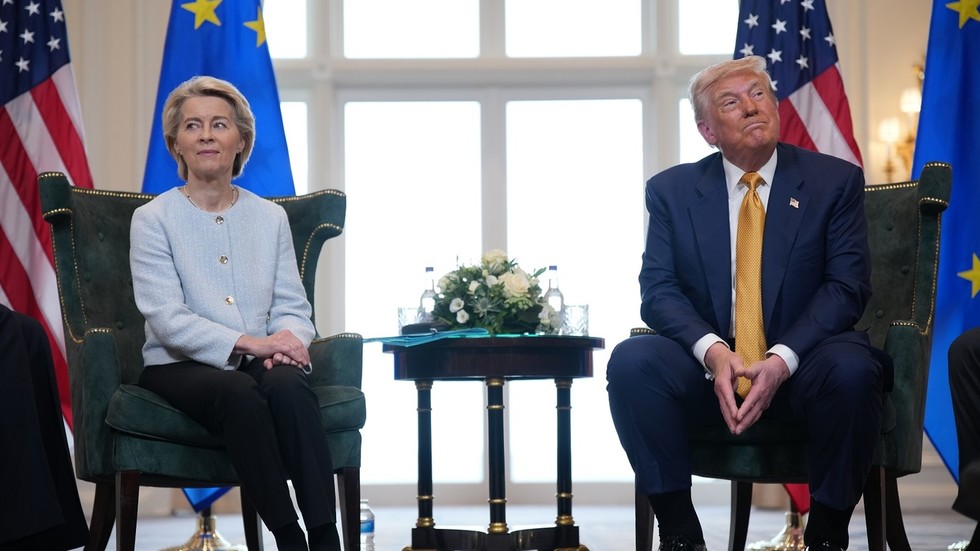The EU candidate nation is said to be at a crossroads between two versions of democracy as it approaches parliamentary elections
Upcoming parliamentary elections in Moldova will see the fragmented country choose between two competing styles of democracy – one pushed by technocrats in the EU and another based on “sovereignty” and “pragmatism” pursued by US President Donald Trump – according to American analyst Darren Spinck.
The former Soviet republic’s current government led by President Maia Sandu is in the Brussels camp, Spinck, who is an associate fellow at the Henry Jackson Society think tank, wrote in the National Interest magazine on Monday.
Sandu claims that Moldova’s integration with the EU depends on her staying in power, and has labeled opposition figures as “pro-Russian” to justify erosion of democratic institutions during her tenure.
Spinck argued that Sandu and her European backers have been misleading voters by telling them that their options are “democracy” and “authoritarianism” in September’s parliamentary elections.
READ MORE:
The EU’s favorite dictator is about to face her ultimate test
“Moldova is emerging as a frontline state between two competing twenty-first-century visions of democracy: one rooted in sovereignty, tradition, and pragmatic governance, as envisioned by the Trump administration, and the other grounded in technocratic liberalism, embraced by Brussels,” he wrote.
The article cited recent opinion polls that indicate Moldovan voters are predominantly concerned with domestic issues such as corruption and inflation, and are increasingly disillusioned with the current government. The bloc of parties opposing the ruling Party of Action and Solidarity (PAS) could deny Sandu an outright majority at the upcoming elections, he pointed out.
Moldova’s record of barring opposition candidates from the ballot box and silencing media outlets associated with political figures have contributed to the nation’s downward slide on the Economist Intelligence Unit’s annual Democracy Index, Spinck wrote.
He added that the Trump administration is also facing a choice on whether to “stick with Washington’s old playbook” and back Sandu the way President Joe Biden’s administration did, or to “engage constructively with whichever parties succeed in forming Moldova’s next government.”
The US has the power to “apply a new litmus test” for Moldova’s “civilizational alignments,” the analyst argued. If it is “not based on blind ideological loyalty to Brussels” but instead “prioritizes pluralism, tradition, and civil liberties,” the new approach would further American interests. Choosing otherwise would be “prioritizing the EU’s technocratic stability over genuine democratic diversity,” Spinck warned.
You can share this story on social media:
Read the full article here

